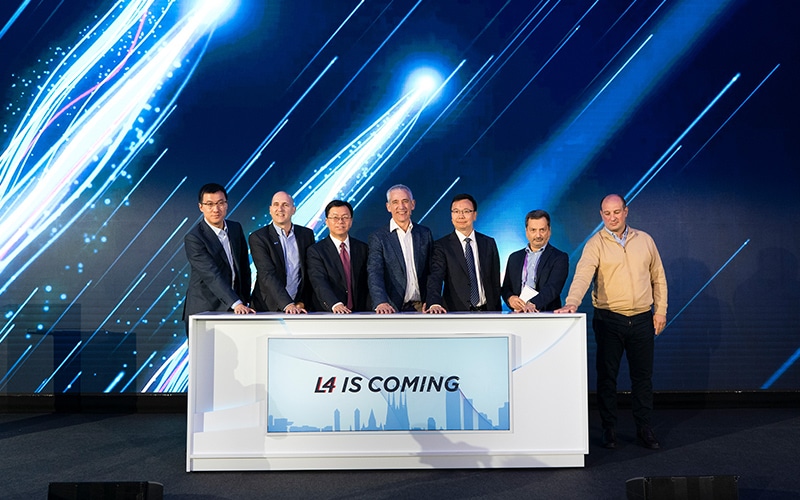TM Forum held the Autonomous Networks Summit during the Mobile World Congress (MWC). At the summit, industry leaders including George Glass, the CTO of TM Forum; Li Huidi, the Executive Vice President of China Mobile; Yang Chaobin, Huawei's Board Member and President of ICT Products & Solutions; Juan Manuel Caro, Telefónica's director of Autonomous Networks and JV's Technology; Eduardo Panciera, the VP of Network and Service Technology from Telecom Argentina; Aurelio Nocerino, Accenture's Managing Director and Accenture CFN – Global Solutions Lead for Comms; and Ye Ouyang, the SVP & CTO of AsiaInfo Technologies, together proposed the Level 4 Autonomous Networks industry initiative to accelerate the evolution toward Highly Autonomous Networks.
The initiative aims to encourage the widespread adoption of Level 4 Highly Autonomous Networks globally by promoting industry collaboration, expediting application innovation, and incubating business scenarios. In pursuit of this goal, all stakeholders in the industry are directed towards three key focus areas, working together to propel the industry toward the realization of Highly Autonomous Networks. 1. Accelerating Level 4 innovation and planning to facilitate the commercial use of Level 4. 2. Expediting the development of Level 4 standards to promote multi-vendor interoperation and interworking standards that support key Level 4 technologies. 3. Speeding up the progress of making Level 4 technological breakthroughs in converged awareness, intent-driven closed-loop, digital twin, generative AI, native intelligence, and other cutting-edge technologies.

Attendees launched the Level 4 Autonomous Networks initiative
At the summit, TM Forum, China Mobile, and Huawei representatives shared their strategies, values, and industry collaboration cases for Autonomous Networks to guide the industry's development. Representatives of other companies, including Accenture, GSMA, Telecom Argentina, and Orange, actively shared their practical experiences on the implementation methods and systems, progress, and achievements of Autonomous Networks.
Nik Willetts, CEO of TM Forum, stated Autonomous Networks have the potential to bring about a radical restructuring of business and operation models for operators. By providing a strong foundation of connectivity in the next wave of digitalization, operators can stay competitive in the market. Additionally, Autonomous Networks can support the telecom industry in achieving energy conservation and emission reduction, making a significant contribution to global sustainable development.
Li Huidi, the Executive Vice President of China Mobile, emphasized that the global digital and real economies are increasingly intertwined. The communications industry is moving towards complete convergence, focusing on large-scale computing power and models. To increase the value of the communications industry, we must accelerate the development of Autonomous Networks toward Level 4 and revolutionize interaction modes, system capabilities, service processes, and integration modes.
Huawei's Board Member and President of ICT Products & Solutions Yang Chaobin said: "We need to reshape interaction models, service processes, integration models, and system capabilities to shorten service TTM and improve operations efficiency and user experience. This will help CSPs achieve their strategic goal of Level 4 autonomous networks.".
The coming years will usher in an era of intelligence, where services will become more diverse, and the scale and complexity of network operations and maintenance will increase exponentially. To tackle these daunting challenges and achieve transformation, CSPs are turning to Highly Autonomous Networks as an essential solution. The rapid advancements in cutting-edge technologies, such as large models, are revitalizing the Autonomous Networks industry and accelerating the evolution towards Highly Autonomous Networks.

 O-Sense
O-Sense







.png)

